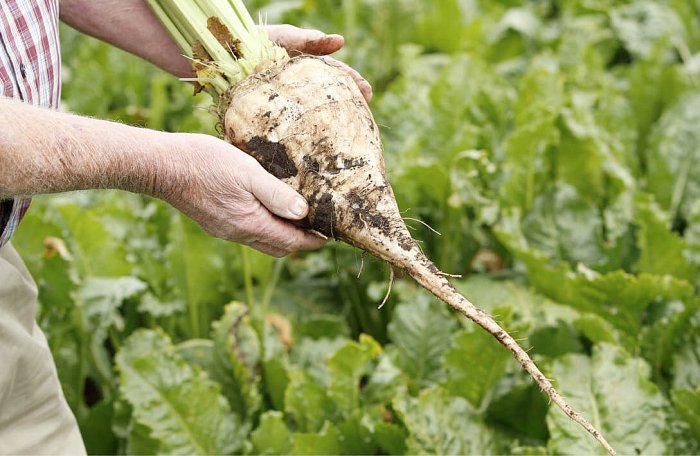
Latest news
All recent news from British Sugar
Mums urged to reset ‘diet dial’ and live by 80/20 rule
5 March 2015

- Over a third of mums (34%) kicked off 2015 with a ‘quick fix’ diet and average time they stuck to it was just two weeks
- Almost half (47%) say they have lost weight through a ‘quick fix’ diet but haven’t managed to maintain it, with 80% going back to their old eating habits
- Three in five (60%) admit to skipping a meal to save calories – one in five say they skip breakfast
- Mums advised by Registered Dietician, Helen Bond, to reset 'diet dial' and aim for 80/20 balance
Following the trend of mums trying new diets at the start of the year to battle the excesses of the festive period, new research reveals that a third (34%) of mums admit to having tried a ‘quick fix’ diet already this year. However, for many, it appears it hasn’t been worth the effort, as it has had little impact on their overall weight loss.
The research of 2,000 mums, carried out by AB Sugar, also reveals that diet-conscious mums are always on the lookout for ways to save calories, with three in five (60%) admitting to skipping meals; almost one in five (16%) skip breakfast – the most important meal of the day – to ‘save’ valuable calories.
Registered Dietician, Helen Bond, says, “There are many times throughout the year – including after an excessive Christmas, before a holiday or ahead of a special occasion - when some of us would like to lose those extra pounds. So it can be tempting to go for the ‘quick fix’ diet that promises to get us into shape in a few weeks, or start skipping meals to save calories and lose that weight. However, as our research shows, this short term, quick diet approach isn’t working.”
The research also identifies the reasons behind the focus on calories and ‘quick fix’ diets, with over a quarter (28%) wanting to look better generally and just over a quarter (26%) being worried about their weight. What’s more, for many mums, it appears the pain of ‘quick fix’ diets is just not worth the hassle. Despite these motivations, the average amount of time stuck to a ‘quick fix’ diet is just two weeks; almost half (49%) admit they didn’t stick to their latest diet, almost half (47%) say they lost weight but didn’t manage to maintain it, and over three quarters (80%) admit to going back to their old eating habits when they ditch it.
Helen continues, ”Not surprisingly, sticking to these ‘quick fix’ diets is really tough and so it’s understandable that after a couple of weeks mums have had enough and revert back to their old eating habits – and the weight piles back on.
Rather than the all-or-nothing approach, it’s about lifelong healthy eating and living, taking little decisions along the way that balance pleasure and moderation. My 80/20 rule is simple - if your meals are 80% healthy, then it’s OK to treat yourself with the remaining 20%.”
Despite trying to lose weight and feeling ‘healthier’, the research suggests that many mums may be missing a trick by not taking small steps that could help them achieve their goals in the long-term. For example, over a third (38%) admit they don’t do any exercise whilst on a diet - 8% say they don’t have any energy to exercise due to the diet itself - and almost a third (32%) admit they aren’t ‘balanced eaters’1 either.
Helen concluded, “It’s time to focus on balance in both diet and lifestyle. Eating a nutritionally balanced and varied diet, with appropriately sized portions, and exercising to help burn off some of the calories consumed through the day can be key to long-lasting effects. Anyone can do it – not just mums, but the entire family.”
Dr Julian Cooper, Head of Food Science, AB Sugar: “For those wanting to achieve and maintain a balanced diet, one way to help is by taking a look at the nutritional labels which are on all pre-packaged food and drinks. This information can help you understand the nutrient and calorie count and enable you to make informed choices throughout the day.”
Helen’s simple steps towards a balanced diet and active lifestyle include:
- Balance your plate: Healthy eating is about balance. The easiest way to make sure your diet is balanced is to include foods from the four main food groups in every meal (also illustrated in the ‘eatwell plate’2): fruit or vegetables, starchy, fibre rich carbohydrates (such as wholemeal bread, wholegrain cereals, potatoes, brown rice or wholewheat pasta); protein rich foods (lean red meat, chicken, fish, eggs or pulses) and reduced fat milk and dairy products. In the meantime, keep fatty and sugary foods to an occasional treat.
- No foods are ‘forbidden’: There are no ‘good’ or ‘bad’ foods, only good or bad diets. Try living by my 80/20 rule of healthy food choices to occasional treats.
- Take small, manageable steps: Think about planning a healthy diet as a number of small manageable steps, rather than one big drastic change – like adding salad to your sandwich or including an extra vegetable for dinner. Also, you can exercise without having to be gym obsessed - take a walk in the park or get off at one bus stop earlier than your normal one.
- Watch your portion sizes: The more food put in front of us, the more we’re likely to eat it, so it’s time to start putting less food on the plate. Also, check serving size suggestions on ready-made foods, especially for pasta and rice, then stick to them!
- Always read the label: Try to get into the habit of reading food labels. Many products offer both calorie and nutritional information for fat, saturates, sugars and salt. Many also show the percentage a typical serving contributes to an adult’s reference intake (RI)3 for these nutrients, helping you put them in the context of your own diet.
For further information, including simple recipes ideas, please visit www.makingsenseofsugar.com
1. Balanced meals – those having a varied balance of nutritional ingredients across all food groups i.e. carbohydrates, proteins, dairy, fruit and vegetables
2. The eatwell plate can be found here
3. Reference Intake - the term "reference intakes" (or "RIs") replaced “guideline daily amounts” (“GDAs”), which used to appear on food labels. As part of a healthy balanced diet, an adult's reference intake ("RI") for a day is 8,400 kJ/2,000kcal
Notes to editors:
For more information and to sign up to our mailing list, visit www.makingsenseofsugar.com.
You can also find us on Twitter @senseofsugar.
For images of Helen Bond or Dr Julian Cooper, or for interviews please call:
0207 492 0975 or email press@makingsenseofsugar.com.
The online survey was conducted by OnePoll amongst 2,000 UK mums with children between 0-16 years of age and have advised they have been on a ‘quick-fix’ diet. Poll took place between 16 February and 20 February 2015.
About Helen Bond, BSc. (Hons) SRD, MBDA
Helen graduated in 1996 with a 2:1 BSc. Honours degree in Dietetics from Queen Margaret University, Edinburgh, having incorporated six months studying dietetics and applied biology at the Universite des Science et Technologies in Lille, France.
She was awarded the Abbott Laboratories Prize for the student presenting the dissertation of the highest standard in the final year of the Bachelor of Science course. Helen's undergraduate research was published in the much respected journal "Nutrition and Food Science", in addition to its presentation at the 1997 European Congress of Obesity, Dublin. This was a pilot study researching the effects of deliberately inserting snacks between meals on nutrient and calorie intake at mealtimes.
Born and brought up in Lancashire, Helen went back to her roots to train as a Basic Grade Dietician at Royal Preston Hospital, where she gained widespread experience in many aspects of nutrition and its relationship to health.
In 2000, she started her own business and took on the position of Consultant Dietician. She currently provides assistance to several top name food companies, Public Relations (PR) consultancies and marketing agencies, is the nutrition voice for BBC Radio Derby, a spokesperson for the British Dietetic Association and is regularly quoted in the national, consumer and health professional press.
About Making Sense of Sugar
AB Sugar has launched a new campaign, Making Sense of Sugar, to help inform and educate people about sugar, the role it can play as part of a healthy balanced diet, and to help people make better informed choices about what they consume.
The campaign provides information about sugar in a way which is simple, straightforward and informative, while ensuring facts are always based on robust science. It also addresses the myths around sugar and obesity and help people better understand the link between the energy (calories) they consume versus the energy (calories) they expend.
For more information and to sign up to our mailing list, visit www.makingsenseofsugar.com. You can also find us on Twitter @senseofsugar.
About AB Sugar
AB Sugar is one of the largest sugar producers in the world and has operations in 10 countries, from Europe to southern Africa to China, and employs around 40,000 people. The company is also involved in the developing bioethanol industry and in seed coating and enhancement technology, as well as non-sugar products including animal feed, soil conditioning and landscaping products, electricity and even tomatoes. AB Sugar has the capacity to produce over five million tonnes of sugar and around 600 million litres of ethanol each year.
British Sugar (part of AB Sugar) is the leading supplier of sugar to the UK market and is the sole processor of sugar beet in the UK, producing more than one million tonnes of sugar at its four factories from around seven million tonnes of sugar beet.
AB Sugar is an advanced and sustainable manufacturer with a real commitment to its people. The company believes its business decisions should simultaneously benefit the environment, its stakeholders and the communities in which it operates.
AB Sugar is a wholly owned subsidiary of international food, ingredients and retail group Associated British Foods (ABF) with 2014 sales of £12.9bn and over 118,000 people in 47 countries.
For more information, visit www.absugar.com





